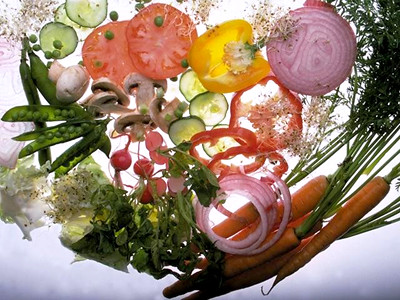
All concepts are not equally easy to learn or recognize. Researchers distinguish betweenconjunctive and disjunctive concepts. They also characterize some concepts as goal-derived. Finally, some cases are more typical of theirconcept categories than others.
1. Conjunctive Versus Disjunctive Concepts
Researchers distinguish between easy-to-learn conjunctive concepts and harder-to-learn disjunctive concepts.
Conjunctive concepts are categories of things or ideas that share two or more common features simultaneously. For example, if you are shopping for "diet cola", you must choose from only those products featureing both desired qualities: a low-calorie diet formula and a cola flavour. This is a relatively common and simple application of concepts in making everyday choices.
Disjunctive concepts are categories of things or ideas that share either one or the other of two specified features. For example, a dieter ordering from a restaurant menu may want to choose an item that is either vegtetarian or low-calorie. This represents a broader selection than the conjunctive concept of "vegetarian and low-calorie". The disjunctive rule includes all vegetarian items, whatever their caloric content, and all low-calorie items, whether they are vegetarian or not. Given the larger range and unobvious connection, disjunctive concepts are harder to learn.
2. Goal-Derived Concepts
One feature that might characterize a concept category is the purpose or goal of a behaviour.� For example, the following very different items all 'belong' together because they all fit in the concept category of "things necessary for writing a paper": pen, paper, typewriter, dictionary, desk lamp. Goal-derived concepts are categories of items linked by their connection to a common purpose.
Goal-derived concepts involve overlapping or intersecting other concepts. In the course of experience one learns that "pen" fits into the category of "things to write with" including pencil, crayon, and chalk, and that "dictionary" fits both the category "books" (which includes other books) and the category "small, heavy objects" (which can include rock, bottle, hammer and teapot). Thus goal-derived concepts are more complex, harder to learn and more useful than simpler concepts in solving problems and making decisions.
3. Typicality
Some concepts include a broad range of examples, not all of which clearly "belong". Typical examples of a concept better summarize the features and qualities of the concept category. A robin is a typical example of the concept "bird". A chair is a typical example of the concept "furniture". A typical examples are harder to agree on and do not as clearly "belong" in the category. A penguin is a bird, but it is not a typical bird. A wastebasket is a piece of furniture, but it is not a good example of the concept.
No comments:
Post a Comment